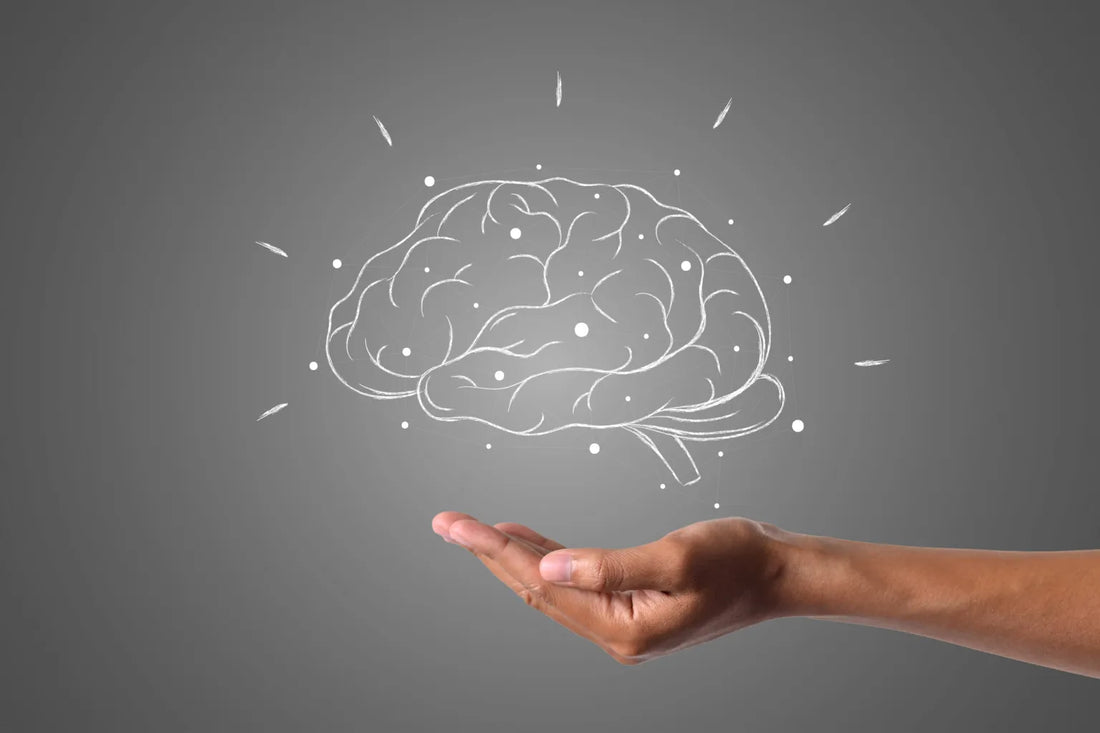
6 Ways Having a Crush Affects Your Brain
Share
You see your crush out of the corner of your eye. Suddenly, your heart’s pounding, hands are sweaty, and you feel butterflies in your stomach. You ask yourself: Am I crazy? What’s making me feel this way? Or, instead of making you nervous, seeing them might just make your day a little better. Maybe even just daydreaming about your crush is enough to make you feel happier. Crushes help make our lives just a little more exciting.
But have you ever wondered what happens to your brain when you’re crushing on someone? The biology behind what makes you so obsessed, shy, or confident? Read on for 6 ways having a crush affects your brain.
Addicted to love.
Dopamine is a feel-good chemical in your brain that releases when you think about your crush, to give you warm and happy feelings. Attraction first begins in the ventral tegmental area, or VTA, where dopamine is primarily released during crush-associated happiness. In the first spark of attraction, your brain identifies a possible reward– the crush– and starts releasing feel-good chemicals that leave you wanting to pursue it.
According to licensed professional counselor Natalie Mica, our brain is wired to want this feeling of euphoria, so we tend to want to think about and be around our crushes more often. Are you the type of person to always be crushing on someone? Dopamine release might be responsible for making having a crush feel so fun and even addictive.

Blinded by love.
When you’re infatuated with someone, your brain might be prone to thinking that your crush can do no wrong. You might even be overlooking some clear-as-day red flags. This is especially true if you find that the attraction is reciprocated.
According to neuroscience researcher Dr. Julia Ravey, your prefrontal cortex, the area of your brain responsible for critical and higher-process thinking, and your amygdala, your emotional control center, are deactivated when you’re in love. That might explain why everything about your crush may seem perfect at first – until a reality check hits! The brain loses its ability to think clearly when in the lens of love.
Obsessed with love.
So you find yourself daydreaming about your crush. Do you wonder why it’s so hard to get them out of your head? When you’re in the early stage of romance, such as on a first date, attraction can be intense.
According to a study by Psychiatrist D. Marazziti of the University of Pisa, the levels of the neurotransmitter serotonin in people experiencing romantic attraction are just as low in people with Obsessive Compulsive Disorder (OCD). In people with OCD, blocking serotonin reuptake has been shown to be an effective treatment, which may imply that high serotonin levels are associated with OCD-like tendencies, according to Dr. Julia Ravey.
Hmm… interesting… Maybe it’s not as easy as it seems to just stop thinking about your crush.
Attachment and jealousy.
Whether it be with friends or family, attachment is the driving factor in all of our long-term relationships. Do you find yourself fantasizing about long-term commitments with your crush, like moving in together, getting married, or even having kids? You might be attached.
During attachment, the brain releases oxytocin from the hypothalamus. According to psychologist Dr. Melanie Greenberg, oxytocin is a hormone that creates the desire to bond with and nurture your partner. It is also the hormone released during orgasm, childbirth, and even breastfeeding, associated with bringing people closer together. However, oxytocin has a dark side too: it can lead to clingy behaviors and even jealousy. So, when you see your crush hanging out with another person and feel yourself getting green with envy? That’s oxytocin.

Nervous from love.
You catch a mere glimpse of your crush when you weren’t expecting them. That flip-flop feeling in your stomach is happening again. Does this feel like a fight-or-flight response? You can blame the hormone adrenaline.
According to psychotherapist Jessica Baum, when you see something that you’re attracted to, your brain activates the adrenal glands from the hypothalamus to produce adrenaline.
Adrenaline causes an increase in heart rate, nervousness, pupil dilation, and sweating. It also causes blood vessels to dilate and increase the flow of oxygen in your blood, turning your cheeks bright red. Oh no, you’re blushing!
These intense feelings are most prevalent during the early stages of love. However, they won’t last for too long. Adrenaline rushes can cloud your sense of judgment, so make sure you’re still maintaining your sense of self and not devoting everything to your crush.
Memory boost.
Are you able to vividly remember warm and mushy moments with your crush? Having a crush can actually boost your memory-making capabilities.
Norepinephrine, a brain chemical that allows for increased memory of new stimuli, is also released when you have a crush. According to sex and relationship specialist Dr. Melissa Fabello, short-term emotional events, such as a date, hug, or even a warm smile associated with your crush, are vividly stored in your mind, due to the amount of dopamine running through your brain.
You know those sappy romantic shows that show flashbacks of key, intimate moments of a couple at the very end? That’s all thanks to norepinephrine.

Final Thoughts:
And that’s 6 ways having a crush affects your brain. Crushes are a magical thing. How they manage to invoke such strong reactions in us– whether it be nervousness, excitement, or even jealousy– can make us feel like we’re not in control of our emotions.
Did you learn a thing or two about neurotransmitters and hormones when you’re crushing? Feel free to share what you found most interesting or relatable on our website!
By Max Feng from psych2go.net
References:
Baum, J. (n.d.). Attraction & the Effects of Adrenaline on Your Body… and Your Relationship. Jessica Baum. https://www.beselffull.com/blog/attraction-and-the-effects-of-adrenaline
D. Marazziti, H.S. Akiskal, A. Rossi & G.B. Cassano, “Alteration of the platelet serotonin transporter in romantic love”, Psychological Medicine, 29,741–745, (1999)
Fabello, M. A. (2012, December 8). The Neurobiology Behind All of the Ridiculous Things You Do When You’re in Love. Everyday Feminism. https://everydayfeminism.com/2012/12/the-neurobiology-behind-all-of-the-ridiculous-things-you-do-when-youre-in-love/
Greenberg, M., PhD. (2016, March 30). The Science of Love and Attachment. PsychologyToday. https://www.psychologytoday.com/us/blog/the-mindful-self-express/201603/the-science-love-and-attachment
Ravey, J. (2022, 2019 2). Blinded by Love: The Neuroscience of Crushes, Obsession and Rejection. Julia Ravey Science. https://www.juliaraveyscience.com/post/2019/02/22/blinded-by-love-the-neuroscience-of-crushes-obsession-and-rejection
